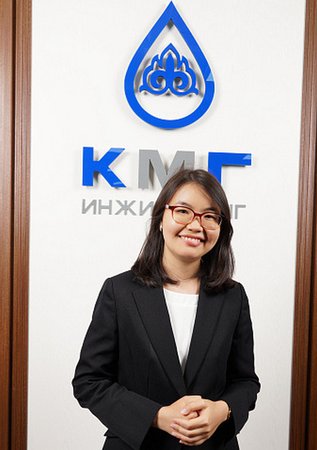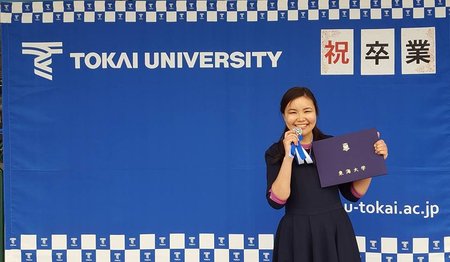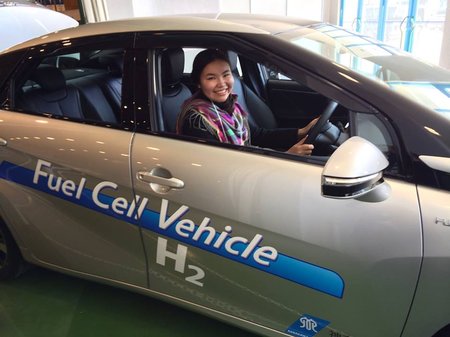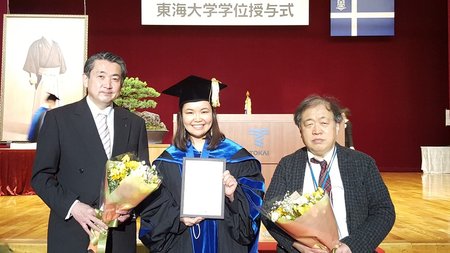



Altynay Abdykerimova (Kyrgyzstan)
Shosaboiyeva Mehrangez (Tajikistan)
Gulnara Bakhtybayeva (Kazakhstan)
Anara Sultangaziyeva (Kyrgyzstan)
Uzakova Shiringul (Uzbekistan)
Kholikzoda Mavdzhuda (Tajikistan)
Nalibayeva Gulzhan (Kazakhstan)
Zhenishkul Imanakunova (Kyrgyzstan)
Kundus Kyrbasheva (Kyrgyzstan)
Nurzat Abdyrasulova (Kyrgyzstan)
Eleonora Kazakova (Kyrgyzstan)
Elvira Borombayeva (Kyrgyzstan)
Yulia Kovalevskaya (Uzbekistan)
Umurzokova Kanoathon (Uzbekistan)
Saidkhodzhayeva Malika (Uzbekistan)

I was born and grew up in Zhezkazgan, an industrial city in Central Kazakhstan. I saw the smoke from the factories from my childhood.
I studied in Daryn Physics and Mathematics Class at Kazakh Gymnasium No. 8. During my school years I took part in conferences on ecology and did my first research on separation of household waste. I remember going to an organization outside the city to find out how much garbage is produced in this city. They told me: “Miss, what are you doing here? Go home.” I explained to them the importance of my research work, which didn't help. As soon as I got home, I started measuring the size of a rubbish bin. I went to my neighbours and measured their bins. In this way, I estimated roughly how much waste a family, person or city produces. I remember going to the library and looking through magazines to learn about other countries' experiences and seeing the clean and colourful recycling plants in Japan. In the future, I will have the opportunity to visit such a plant in Japan.
In addition, my scientific project supervisor, Baitazhikova Kuralay “Mugalim”, encouraged my active participation in a debate club, where we discussed various topics, including environmental issues. She also talked about technological and scientific breakthroughs in the Land of the Rising in her geography lesson on Japan. Thus, my interest in ecology and Japan became an important puzzle in my professional life.
After graduating from high school, I was enrolled in the Oriental Studies Department and studied Japanese history, culture and language. In my second year I applied for the Bolashak Scholarship Program from the government of Kazakhstan and chose to become an environmental engineer. This gave me a chance to study green technology in a country that aims to create an eco-friendly community. I entered to Tokai University, which campus was near Tokyo. At the beginning of undergraduate studies we studied all environmental issues. Classes were always interesting. We took part in various expeditions throughout Japan, from Hokkaido to Okinawa. I was interested in recycling and alternative energy, which are important industries for Kazakhstan. In my senior year, I had to choose a narrow field for laboratory work, so I chose the laboratory of Professor Uchida Haru-Hisa “Sensei”. It was in this lab where I was first introduced to the subject of hydrogen energy. We experimented with hydrogen in a fuel cell, which produced water when hydrogen was used. This experiment was done to show that hydrogen does not emit CO2. However, as I come from Central Kazakhstan, water shortage is a very hot topic in this region and I thought that hydrogen is not only a clean alternative energy source, but also as a source of water. So I decided to research hydrogen energy. As Japan is an island country surrounded by water, my decision came a surprise to the Japanese students.

Why hydrogen? Hydrogen is considered a versatile energy source material, of extreme interest because of its pure product of combustion: water. Therefore, the introduction of hydrogen energy system will ensure long-term energy and environmental sustainability. Depending on hydrogen energy production, it is estimated that the use of coal and oil can be reduced by 36.7% 40.5% respectively by 2030. Hydrogen has a very high gravimetric energy, low volumetric energy and burns faster than gasoline. Hydrogen consumes 3.2 times less energy than gasoline and more than 6 times less than coal. The advantages of using hydrogen as energy source: reduces energy consumption, decarbonisation of fuel and the promotion of renewable energy sources. Thus, hydrogen is now widely used as an ideal global energy source material. According to the International Energy Agency, the expected global demand for hydrogen in various sectors will increase by 100 to 300 Mt between 2020 and 2050. Low-carbon hydrogen is gaining political and business support as a key component of government emission reduction plans.


Thus, I was invited to join KMG Engineering LLP as an expert in hydrogen energy. Together with my colleague we established the first Hydrogen Energy Competence Centre in Central Asia. To implement hydrogen energy projects, it is necessary to develop human resources and technologies in the country. We want to be a bridge between the academic world and industry. So that industry in Kazakhstan can use the technologies developed by our scientists. To achieve this, a lot of work to be done. We also analyse and monitor the sector in order to know how and where to move forward. Projects and technologies need to be implemented and revised based on scientific findings and analyses. In Kazakhstan, they have recently started looking at hydrogen.
For me, the key to everything I do is ideas. Ideas for creating and implementing new direction. It is great to be able to focus on developing the country, improving the ecology and power situation, to be able to use my knowledge and experience, and have the opportunity to implement and develop them. This is of course a new field, there are difficulties and there are no immediate visible results, but I am confident that our activities will be the basis for further action.
Our Center has started functioning recently, it is a small group of young professionals, engineers and researchers with big plans and goals.
During my studies, as I continued to look for scholarships, everything seemed like a challenge at that time, from failed experiments to unsatisfactory test results, especially since I was so far away from home. My sensei told me that the most difficult and most important period for a scientist is the doctoral studies and that if you can endure all the difficulties of the studies, you have nothing to fear, no matter what happens in the future. To do science, you need perseverance and interest in research.
I came back to Kazakhstan last spring and was looking for a job in the field of hydrogen energy after studying it for 10 years. I applied to various institutions, companies and universities, but unfortunately no one was interested. It was a critical moment, when it seemed that what I have learned was not needed by everyone. Then I heard on the news the President’s instruction to consider hydrogen energy. I wrote to everyone who shared the news to find out who, where and how would implement hydrogen. I wrote that I was studying and learning about hydrogen energy and that I was looking for a job related to hydrogen energy.
I was also invited as a speaker, a young scientist to talk about my research. I gave a talk at the project Caravan of Knowledge, after which I was called and invited for an interview because they were looking for a specialist in hydrogen energy. So, all the “stars aligned”. I was told I was back in Kazakhstan “in time”.
As a person from academia, I have to demonstrate the need to support science and research in the industry; as a “hydrogen scientist”, I had to raise awareness of alternative energy in the traditional oil and gas sector; as a young professional, I had to convince experienced professionals of the need for innovations. The fact that there are few women in the energy sector does not make my job any easier either.
During my master's degree programme, I attended an international conference on hydrogen energy. There I met successful women scientists. Among them was a woman doctor, a professor from Indonesia. Like me, she studied in Japan and then returned to her home country and started introducing hydrogen energy. She advised me to continue my studies. I still keep in touch with her. We met again recently at a conference. She shares her experiences. And it is inspiring.
During my doctoral studies, I realised that I enjoy learning and doing research. It's an area I’m passionate about, and will benefit the world. I think my journey has just begun.
The hour of triumph has not yet come. I look forward to the future. The most important thing for me to succeed is to believe in myself and the support of my loved ones. I am grateful for the support of my family and my husband. My mother told to me that if I don't believe in myself, no one else will.
In Japan, I once attended an event with participation of the rector of a university. There was a discussion about the need to pursue master's and doctoral degrees, especially for women. Several women-students shared their stories and, in this way, discussed what or who influenced their decision to study further. In my case, I was a foreign student who went to a distant country to get an education. I mentioned that my mother studied in Moscow. In the end, the Japanese came to the conclusion that my mother had studied abroad and therefore supported me in my studies. I will always remember the saying: “Educate women, educate a generation”.
So, I don't consider myself a successful person. However, I have been told that my belief in my idea, my interest, my involvement in my work, my determination to achieve my goals, my ability to explore different ways of solving problems and do not giving up easily, energize others. I had to apply for several programs to pursue my doctoral studies, but somewhere it did not fit my field of specialization, somewhere the citizenship, somewhere the university, etc. It was the same with the job, wherever I wrote and sent my CV.
CA has great potential. Located between Europe and Asia, we are countries where we preserve traditions and culture, and we seek to develop as secular countries. CA could be one of the key countries to accelerate the energy transition. The energy mix in CA is dominated by fossil fuels, but renewable energy potential plays a key role. The region has a high potential for solar and wind energy. This potential should be exploited. The potential of human resources should also be noted. Especially strong women. Women who take care of the hearth and develop the country. However, these women need support.